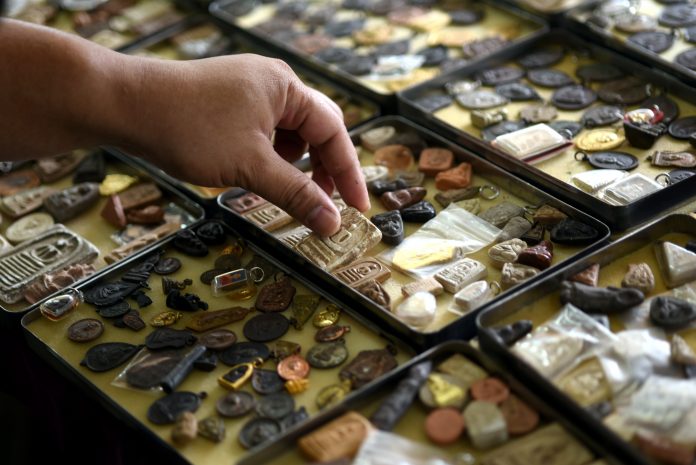The amulets “industry” in Thailand seems to know no crisis. It continues to thrive despite the pandemic, which has put much of the country’s manufacturing and commercial activities under pressure, forcing many to close.
An estimated 70 percent of Thais wear amulets, which are often purchased in Buddhist temples as a souvenir of a visit, in a religious event, or in a period of spiritual retreat. Amulets are also supposed to perpetuate the experience of a meeting with a revered monk.
Amulets are objects not only for collecting and trading, but are also at the heart of a growing trade. It is estimated that the business is worth more than a billion euros every year and has tens of thousands of sellers and millions of buyers, increasingly also abroad.
The search for better health conditions, economic well-being, positive relationships with others are the basis of wearing amulets, a centuries-old craft, although often interpreted as a “commercialization of the faith” that is discouraged by some sectors of the Buddhist clergy.
The sale of amulets is part of the sources of income in temples and monasteries in a country where Buddhism is one of the foundations of national identity.
The variety of shapes and images has become attractive to collectors as well as Buddhist devotees. Age, materials, type of representation, origin and above all the authors make the difference in terms of value of amulets.
The most expensive amulet so far was bought for the equivalent of 2.7 million euro by Thai millionaire Vichai Srivaddhanaprabha, former owner of the English football club Leicester City.
The spread of the amulets among foreign collectors has also contributed to making these the target of alternative investments. The American Wwin Group, which like others is experimenting with its own digital identification services for religious objects, has been anticipating the launch of the first online market for Thai amulets.









